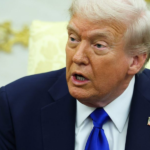Just to take a step back, let’s consider the sheer improbability that crypto has become one of the top legislative priorities for Congress. This isn’t health care reform or a major infrastructure vehicle. You could argue that the attempt to create regulation for the crypto sector is in the spirit of Dodd-Frank, but that landmark bill only passed in the wake of the largest financial crisis since the Great Depression and reshaped the foundation of our banking system.
Beltway insiders I’ve spoken with have said the likeliest outcome, at least at this point, is that the House bundles together the stablecoin bill with the market structure bill, which will inevitably slow the cogs in the Senate. The upshot is that Congress has a slim chance of passing anything by August, which was a deadline that Trump previously demanded. And if the two bills end up combined, rather than the House rubber-stamping its own version of the Senate’s Genius Act, the crypto industry’s $100 million shot at enacting legislation could be seriously hamstrung. As one lobbyist told me, “It’s the calculus everyone is wondering [about].”









